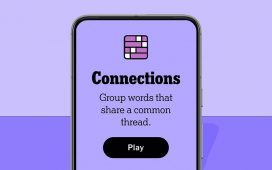7. Clever Cubed (Brettspielwelt)
I mean, the title is a bit pretentious, but it is actually clever.
If you’ve played That’s Pretty Clever or the sequel Twice as Clever, this is more of the same and from the same developers—but this app is smoother and more polished than its predecessors. You roll six dice in different colors, then score them in the matching area on your scoresheet (with the white die as a wild). Each die color scores in a different way, and there are bonuses all over the scoresheet for filling in certain spaces, rows, or columns. Scoring 300 is a reasonable challenge, and 400 is doable but hard, while good players have gotten well over 500 (but this player still has not). The original game is probably still the best, but I’d rate this higher than the second one. The board game is multiplayer with a solitaire mode, but the app is solo only.
6. Charterstone (Acram Digital)
A worker placement legacy game that starts as simple as it looks here but grows more complex.
Charterstone is a legacy game from Jamey Stegmaier, whose Viticulture appeared earlier on this list. This game is a very traditional worker placement sort of game, but one where the rules—and even the workers—change a little bit in each of the 12 games you’ll play in a complete campaign. It’s beautifully rendered, with lots of cute animations for the various buildings you’ll construct, but the physical board is wide and detailed. This app has some trouble translating that to the screen, which is a limitation because you can place a worker on any building, even if it’s not one you placed yourself. The app does still work well with competent AI opponents.
5. Cartographers (Brettspielwelt)
This flip-and-write game translates seamlessly to digital as you fill out your map with polyomino shapes.
The physical game was nominated for the Kennerspiel des Jahres award this past year, losing to The Crew, and it plays an unlimited number of people (like fellow roll-and-write Welcome To…). The app is a straight solo game with several modes, including an unranked one, but it’s the same game. You have a giant sheet with a grid on it, and you try to fill it out in a way to score the four unique scoring cards for that specific game. You do so by coloring in the shapes on the cards that are drawn each round in four different colors, although each card either gives you a choice of two colors or a choice of two shapes. There’s a “cost” associated with each scoring card, so it’s very easy to score in the negatives. I’ve done so many times, in fact.











